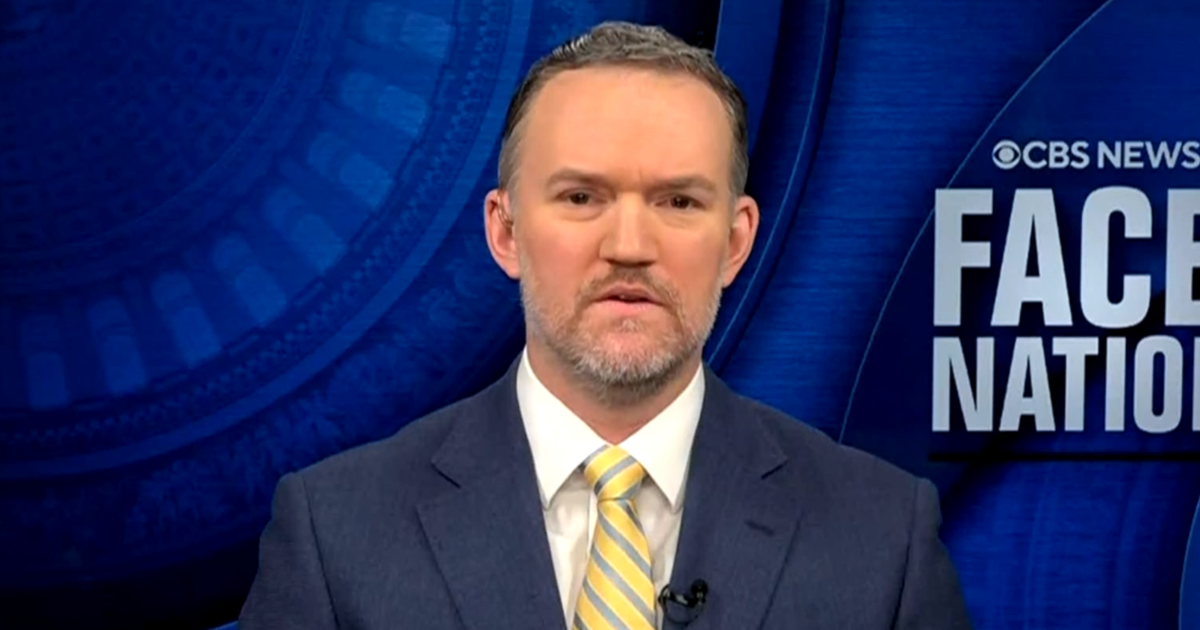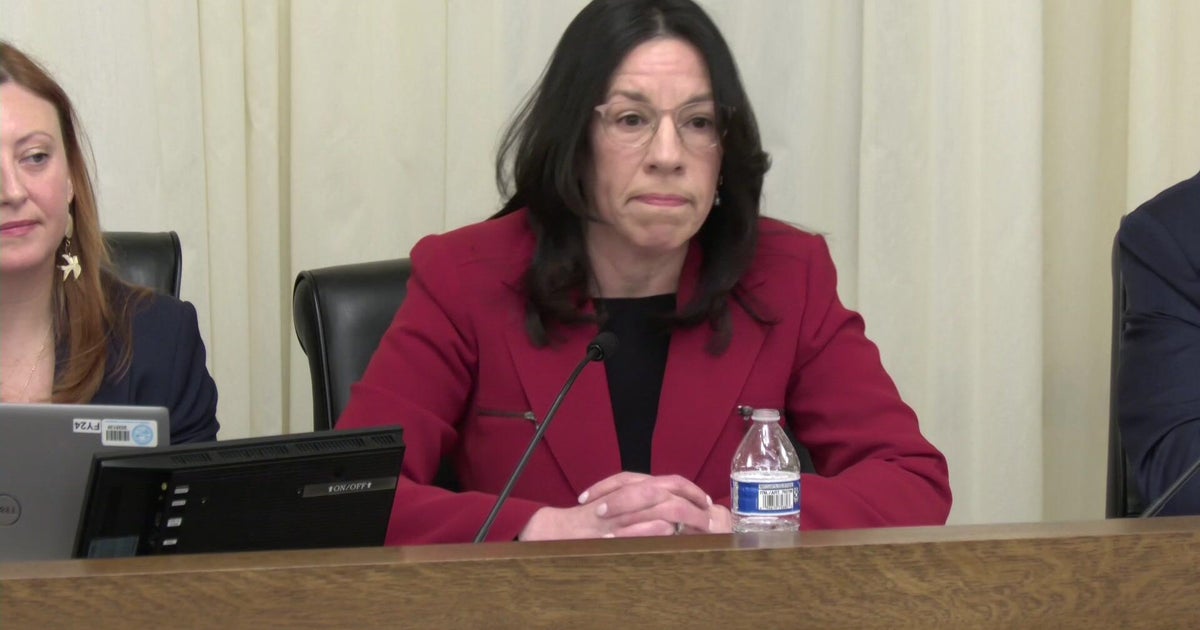Transcript: Phillippe Lazzarini, UNRWA commissioner general, on "Face the Nation," Nov. 26, 2023
The following is a transcript of an interview with Phillippe Lazzarini, UNRWA commissioner general, that aired on Nov. 26, 2023.
MARGARET BRENNAN: We go now to the Commissioner General of the United Nations Relief and Works Agency for Palestine Refugees, Philippe Lazzarini. Welcome back to Face the Nation.
COMMISSIONER GENERAL LAZZARINI: Good morning, Margaret.
MARGARET BRENNAN: I understand you're joining us from Amman, Jordan this morning. Roughly 108 of your staff members in Gaza have been killed, according to your reports. That's the highest number of UN workers killed in the history of the United Nations. We are very sorry for your loss. I'm wondering, given that you are sharing your location coordinates with both parties. Why is there still such a high death toll?
COMMISSIONER GENERAL LAZZARINI: Yes, Margaret, this is definitely devastating news and the United Nation never ever lost as many staff in such a short period in the conflict. But now it is also true, Margaret, that about 70 of our location, sheltering more than 1 million people, have been hit since the beginning of the conflict. And we had about 200 people who have been killed and (unintelligible) injured. And this despite the fact that we're constantly de-conflicting, and notifying the Israeli authorities, but also the (unintelligible) and Hamas about our location.
MARGARET BRENNAN: So who is hitting these locations? I've seen your own UN reports that say you discovered some UNRWA schools have been used for military purposes, Israeli tanks nearby. You've also seen weapons storage in some of these facilities, is that Hamas?
COMMISSIONER GENERAL LAZZARINI: We will definitely need to have an investigation about all these allegations. For the time being we are in no position to determine who has been behind each of the incidents we have reported until now. But clearly here, this has been a blatant disregard of international humanitarian law, a blatant disregard of UN premises, and a blatant disregard of a civilian population.
MARGARET BRENNAN: The White House says Israel's combat operations in South Gaza should not happen until there are assurances about protecting civilians in the south of Gaza. Have you given- been given any kind of assurances here? Are you confident you can operate there safely?
COMMISSIONER GENERAL LAZZARINI: Margaret, we are not confident because they haven't been any safe place until in the Gaza Strip. People were initially asked to move from the north to the south. And we have seen that a number of people have been killed in the south. So they haven't been in a safe place yet. Having said that, we have this week reached more than 1 million people, more than half of the (unintelligible) sheltered in the UN premises. And we will continue to ask that the Israeli authorities and the warring parties to make sure that these places being respected and in line with their obligation with international humanitarian law.
MARGARET BRENNAN: How dire is the humanitarian situation?
COMMISSIONER GENERAL LAZZARINI: You said- I went back last week to Gaza for the second time. The situation is much worse than what I saw the first time. Just to give you an example. I visited the vocational training center of UNRWA. We are sheltering 45,000 people there. I met a father with his five children. They live in a four square meter makeshift, basically sleeping on the floor, no mattress, no blanket. Winter is coming. And all of a sudden he is bursting into tears and saying, "Well, my dignity has been stripped," and his story is a story of hundreds of thousands of people in the Gaza Strip.
MARGARET BRENNAN: We have to take a break here and we'll continue our conversation on the other side of it. Please stay with us.
(COMMERCIAL BREAK)
MARGARET BRENNAN: Welcome back to Face the Nation and our conversation with Phillippe Lazzarini of the UN Relief Agency for Palestine Refugees. Mr. Commissioner General, how much aid is getting into Gaza now as part of this diplomatic deal?
COMMISSIONER GENERAL LAZZARINI: Since two days- the beginning of the truce, we have seen a significant increase of trucks entering into Gaza. I would say on the first day we had an average of 40 trucks, which was far, far, far too little compared to the immense need in the Gaza Strip. And now I would say over the last few days, we had an average of 160 to 200 trucks crossing Rafah and entering into Gaza. Having said that, I do believe that the 200 are hardly enough for the humanitarian response if we want to reverse the impact of the siege in the Gaza Strip, but we need also commercial flow.
MARGARET BRENNAN: I want to ask you, sir, about your organization, which continues to be criticized by some in Israel, including their intelligence minister who published an op ed recently in the Jerusalem Post, and she said, UNRWA has done "zero to help the Palestinian people even though it has an annual budget of over a billion dollars." She argued that the international community should instead fund the costs of moving Palestinians to other countries. I wonder how you respond to that?
COMMISSIONER GENERAL LAZZARINI: UNRWA has a mandate from the General Assembly and basically is requested to provide protection and assistance to the Palestinian refugees across the region, not only in Gaza, and (unintelligible). Since then, when we refer to the $1 billion budget, we have in our school, more than half a million girls and boys, really education from grade one to grade nine. We have more than 2 million people benefiting from our primary house, not only Gaza, but also in Lebanon, in Syria, in Jordan, in the West Bank and in Eastern Jerusalem.
MARGARET BRENNAN: And resettling the rest- all of the Palestinians, I imagine you would strongly disagree with?
COMMISSIONER GENERAL LAZZARINI: UNRWA does not have the mandate from the General Assembly to resettle the Palestinian refugees. The assumption is that there needs to be a political solution, a lasting one, and that way an organization like ours would then phase out. Unfortunately, for 75 years, there haven't been any (unintelligible) solutions and basically we are dealing with the longest lasting unresolved conflict.
MARGARET BRENNAN
Understood. We will continue watching what happens. Commissioner General thank you for your time today.



